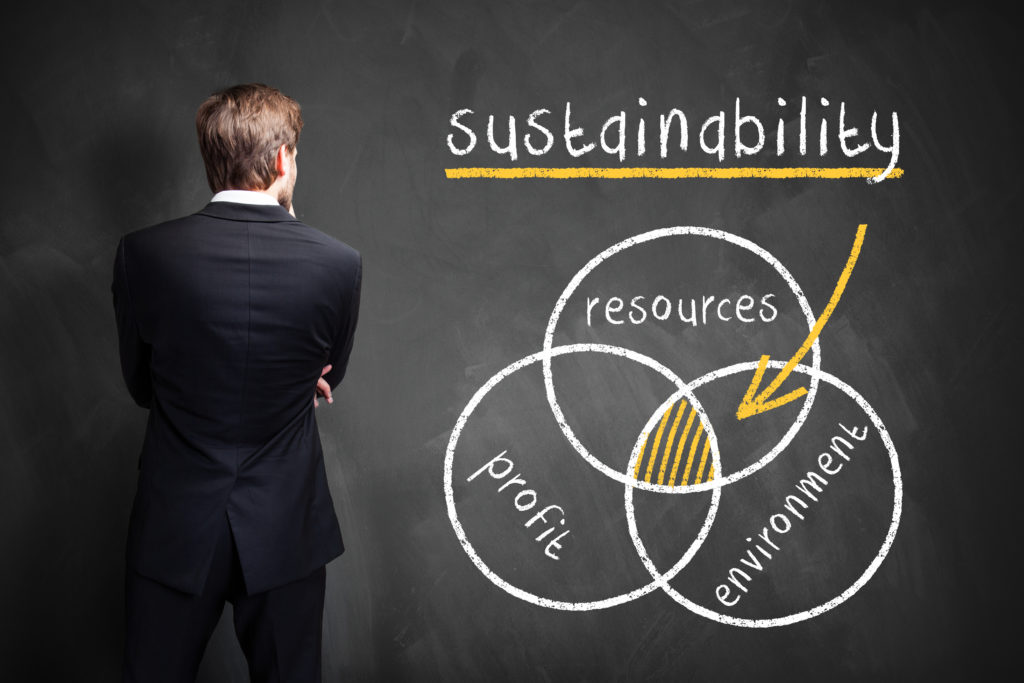Wikipedia defines supply chain sustainability as “a business issue affecting an organization supply chain or logistics network in terms of environmental, risk and waste costs.” It is increasingly seen by both executives and consumers as essential to both the economy and our planet’s future. A sustainable supply chain helps the environment while also enhancing brand reputation and improving Total Cost of Business. Implementing sustainable business processes starts with setting actionable goals and taking measures that make an impact.
Goals for a Sustainable Supply Chain
When we ask what it means to have a sustainable supply chain, the response is generally related to greenhouse gas reduction, waste reduction, and the implementation of a recycling plan. These three main goals will ultimately lead to a cleaner, healthier, and all-around better environment:
Reduce Greenhouse Gases
There are many ways to reduce greenhouse gases in your supply chain, including reducing shipment weights and distances, recycling, streamlining energy in warehouses, and even implementing pallet pooling systems. Individually these practices can reduce your carbon footprint by a small amount, but implementing them together results in big wins for the environment. This greenhouse gas calculator demonstrates how small reductions in transport weight can make a big difference in fuel savings, reduced transport costs, and lower carbon emissions.
Reduce Waste
Millions of tons of perishable food are wasted in the global supply chain every year. By taking action to reduce food waste through improved process management and the adoption of lean policies, managers can eliminate costly losses to both the environment and their Total Cost of Business. Food waste contributes to increased water use in agriculture which is a very important environmental problem.
Implement a Recycling Plan
Many warehouses already recycle cardboard and paper from shipments, but there are other items that can be recycled with a little more effort. Plastic wrap on pallets can be recycled if brought to the proper plant, thus reducing the need to produce more. Recycling the plastic wrap limits the need for nonrenewable resources to be extracted and limits further GHG emissions.
Aside from the obvious fact that creating sustainable supply chains is good for the environment, there are more tangible reasons why a company would choose to make this a priority. Enhanced reputation, more loyalty from clients, and lower costs can be just as important. In recent years, many industries have increasingly adopted a focus on “green” initiatives. Eighty-one percent of consumers around the world believe that businesses have a responsibility to help improve the environment. Government regulators, meanwhile, are increasingly restricting the amount of emissions companies are allowed to produce without fines and legal action.
Small Steps Lead to Big Improvements
As mentioned earlier, while many hear the word sustainability and think it’s all about the environment, it can also help your company’s Total Cost of Business. Often, small sustainably focused actions can make a big impact on both the environment and the bottom line. For example:
Improved Warehouse Lighting
A simple method to lower your costs is to implement modern LED lighting in your warehouses and distribution centers. Modern LED lights last for 10,000 hours of use, saving a substantial amount on replacement cost and energy consumption. LED lights also produce little heat compared to traditional fluorescent bulbs, so they make it easier and more cost-effective to keep your warehouse cool.
Shorter, Lighter Loads
Shipping fees increase at an alarming rate when distance increases on a shipment. To counteract this, companies can shrink their shipping zones as well as lighten their loads. This practice ensures that shipments move faster and allows drivers to return home every day, decreasing the overnight pay to drivers. This in turn saves costs on labor and fuel, plus it reduces overall emissions.
Plastic Pallets and Pooling
Wood pallets are less durable and often end up in landfills once they reach their end of life. Plastic pallets are a sustainable alternative, since they are up to 35% lighter, have four times the lifespan and are 100% recyclable. Even better, a plastic pallet pooling company can minimize transportation and empty miles by moving pallets among customers in the most efficient way possible.
By evaluating their business practices and taking steps like using energy-efficient lighting in warehouses, shortening trips, lowering truck load weights, and choosing a plastic pallet pooling solution, companies can help play their part in maintaining a sustainable supply chain.
Companies who understand the importance of sustainable supply chain management rent iGPS plastic pallets for all their shipping needs. Our pallet pooling program limits supply chain waste and reduces Total Cost of Business. For more information, contact us at 1-866-557-0047, email a specialist at switch@igps.net, or visit our contact page.



